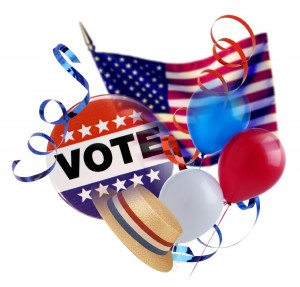Lost in the shuffle of the election of Scott Brown to the US Senate from Massachusetts and its effect on health care reform another incident happened that week that will have profound effects on future elections.
In Citizens United v. Federal Election Commission, the U.S. Supreme Cout “overruled decisions it had made 20 years ago and stated that corporations, labor unions and public advocacy groups could spend unlimited funds advocating the election or defeat of candidates for federal office, meaning Congress or the White House.” The effect of this ruling will also likely affect elections for statewide office. Corporations still will not be able to donate money directly to federal candidates.
The impact this will have on health care is that physicians groups, professional societies, and other medical entities and organizations, along with other areas of business can essentially “run their own campaigns advocating the election of someone or the defeat of someone.” In order to run such a campaign, the corporation must disclose what they are spending and on whom.
The case was brought to the court through Citizens United, a conservative nonprofit organization. The case began “during the last presidential campaign when the group produced Hillary: The Movie and arranged to distribute it via video on demand using the corporation’s money, rather than money from its related political action committee.” Instead, the FEC ruled this a violation of campaign rules.
After the FEC’s ruling, the issue of freedom of speech was raised to protect the right of individuals—in this case, the wealthy—to use television to distribute their political views during election season.
While it is important to note that special interests and the money of corporations should not appear to buy or influence the outcome of elections, freedom of speech demands that America allow all voices to be heard regarding candidates running for political office. This is especially important in today’s current political atmosphere with politicians making decisions that could put millions of workers out of jobs, and companies out of business (e.g. house version of health care reform).
In response to the ruling, President Obama noted at his weekly radio address that the Supreme Court had opened “the floodgates for an unlimited amount of special interest money into our democracy.”
Also criticizing the decision was retired Supreme Court Justice Sandra Day O’Connor. At a recent lecture at Georgetown Law Center, she reminded the audience that she had been among the authors of McConnell v. Federal Election Commission, the 2003 decision that was overruled in large part on last week. The former Justice also asserted that the recent court’s decision will “likely create an increasing problem for maintaining an independent judiciary.”
The 5-4 decision was extremely controversial and consisted of five separate opinions. Some media sources believe that “Democrats in Congress will try to modify the ruling by attempting to pass new laws,” but with upcoming 2010 midterm elections and a stagnant health care bill, campaign finance also may be put on the backburner for now.
Politicians will now have to add to their consideration before attacking organizations that now they have the ability to fight back and run ads in my state or district. This could be a powerful incentive to only release verified and accurate information, and not to announce investigations prior to them ever happening.
All sectors of healthcare will be able to use this tactic to prevent pay-cuts (doc fix), support infrastructure projects (hospitals), and gain access to care (patient groups). The list of possibilities is endless.
Ultimately, when it comes to who we vote for next election season, pay close attention to the publicity candidates receive from corporations, unions, and businesses. While the money being used to support or discredit candidates may concern some, American voters should be able to ascertain what information is important to consider and where it is coming from to make the best decision for our republic.


